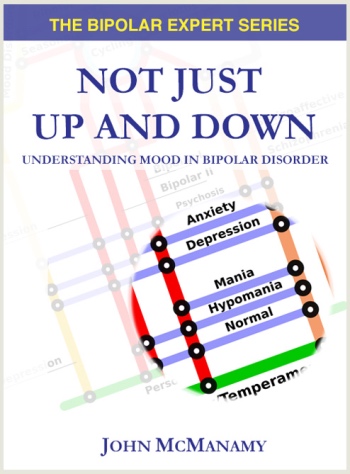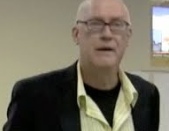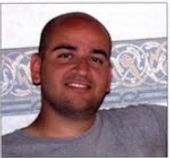Hagop Akiskal and the Mood Spectrum
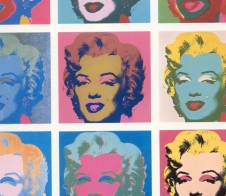 |
If you want to know what is really going on, you need to listen to this guy.
|

Famous psychiatrists. Hagop Akiskal of UCSD is bipolar’s ultimate insider-outsider, at once the field’s elder statesman and enfant terrible, the best-known name in an establishment that would often rather not know him, and vice-versa. “I have no use for the DSM,” he told me as I greeted him at a talk he was about to deliver in March, 2011 to the San Diego chapter of DBSA.
And he was only just getting warmed up.
Dr Akiskal’s presentation was more in the nature of a conversation, with revealing tangents that allowed his audience rare glimpses into the mind of a visionary-at-work. A lot of what you read here on mcmanweb is highly derivative of Akiskal, and for good reason. Basically, if you want to know about bipolar, you read the usual literature. If you want to know what is really going on, you read Akiskal (and Frederick Goodwin, and Robert Post and a few others).
My New Book!
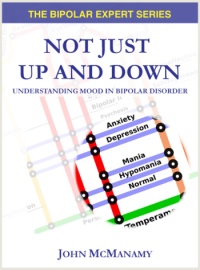
Purchase now.
“Most depressions are at some level bipolar,” Dr Akiskal told his audience. Akiskal literally owns the terms “bipolar spectrum” and “mood spectrum,” which view both mood and temperament as blended shades of the same phenomenon rather than separate entities. Thus depression typically has elements of mania or hypomania, and vice-versa. Agitated depressions, if you like, or dysphoric manias. Think road rage, even if you don’t drive.
Just to make things interesting: Imagine if you have an upbeat (what Akiskal calls “hyperthymic”) temperament. You get depressed - “state,” in effect, superimposed over “trait.” It doesn’t take a rocket scientist to realize that your depression is likely to look quite a bit different than that of the melancholic type sitting next to you. But until Akiskal arrived on the scene no one in psychiatry even came close to thinking this way.
Okay, maybe Emil Kraepelin, a name Akiskal drops every chance he gets, including at least three or four times in his talk. Kraepelin, who was born the same year as Freud, coined the term, “manic-depression.” What Kraepelin meant by manic-depression embraced recurrent depression as well as bipolar. The DSM-III of 1980 missed this completely, as did the DSM-III-R of 1987 as did the DSM-IV of 1994 as did the DSM-5 (due out in 2013).
See why Akiskal has no use for the DSM?
“They are spending millions of dollars on the DSM-5,” Akiskal thundered. “I refuse to be part of it.” The DSM, he says, lists “five hundred ways to lose your sanity.” It could be simplified, he said, to about five or ten or fifteen.
“I don’t believe in borderline,” he threw in for good measure.
Ah, vintage Akiskal.
Cutting Edge Old School
Akiskal’s thinking is light-years ahead of just about all of his colleagues, but there is something very old-school to his approach. Like his hero Emil Kraepelin, Dr Akiskal’s insights are based on countless zillions of hours of exceptionally meticulous clinical observation. Yes, a PubMed search reveals 400 published articles to his name, but all are informed by a lifetime of listening to actual patients.
Listen - who has time for that any more? In a comment on my blog "Knowledge is Necessity," Louise observed that “doctors like Akiskal and Goodwin are a dying breed.” She pointed me to an article in the NY Times that came out the day before Akiskal’s DBSA San Diego talk. The article makes official what we have known for years. According to the piece, discussing the dilemma of PA psychiatrist Donald Leven, who first started practicing in 1972:
Then, like many psychiatrists, he treated 50 to 60 patients in once- or twice-weekly talk-therapy sessions of 45 minutes each. Now, like many of his peers, he treats 1,200 people in mostly 15-minute visits for prescription adjustments that are sometimes months apart. Then, he knew his patients’ inner lives better than he knew his wife’s; now, he often cannot remember their names. Then, his goal was to help his patients become happy and fulfilled; now, it is just to keep them functional.
According to Dr Levin: “I miss the mystery and intrigue of psychotherapy. Now I feel like a good Volkswagen mechanic.”
Actually, it’s a lot worse than that. At least good old-fashioned VW mechanics knew how to tear apart and put back together the whole car. In today’s scary new world of faux-psychiatry where insurance companies call all the shots, Dr Levin is more like the guy who performs oil changes at Jiffy Lube.
All that wealth of experience - wasted.
Perhaps you can see where I’m going with this. If psychiatrists no longer have time to listen to their patients and carefully observe, where are their insights going to come from?
A lot of what passes for academic psychiatry these days is performed by researchers who don’t even see patients. This explains why the DSM symptom lists are so spectacularly out of touch with clinical reality. This explains why the people putting together the new edition of the DSM don’t even deign to listen to Akiskal and Goodwin.
Psychiatry these days is a by-the-book exercise, and the book is wrong.
Eventually, all our new understanding of the science of the mind will come from brain science and genetic research. But in 2009 I heard leading schizophrenia researcher David Braff at a conference caution against the devaluation of clinical experience. Basically, the lab hotshots require the insightful observers of reality to tell them where to look and what to look for.
Indeed, Dr Akiskal has been doing that for years. In his talk to DBSA San Diego, Akiskal made reference to his collaboration with psychiatric geneticist John Kelsoe of UCSD. Essentially, instead of searching for elusive bipolar genes, Akiskal pointed Kelsoe in the direction of genes that influence affective temperament, which promises to be a more fruitful exercise.
Trust me, a geneticist would never have thought of that on his own.
But with a new generation of psychiatrists performing lube jobs, with academic researchers not seeing patients, where are the new clinical insights going to come from?
As Louise said, Akiskal and Goodwin - not to mention their generation - are a dying breed. When they go, there will be no one to replace them.
Akiskal-inspired articles on mcmanweb: The Mood Spectrum * Is Crazy Your True Normal? * The Fear and Anger Equation* Multipolar Depression * What's in Your Diagnosis?
Based on a series of blogs, March 2011, reworked into an article May 16, 2011
 |
More famous people articles. |

